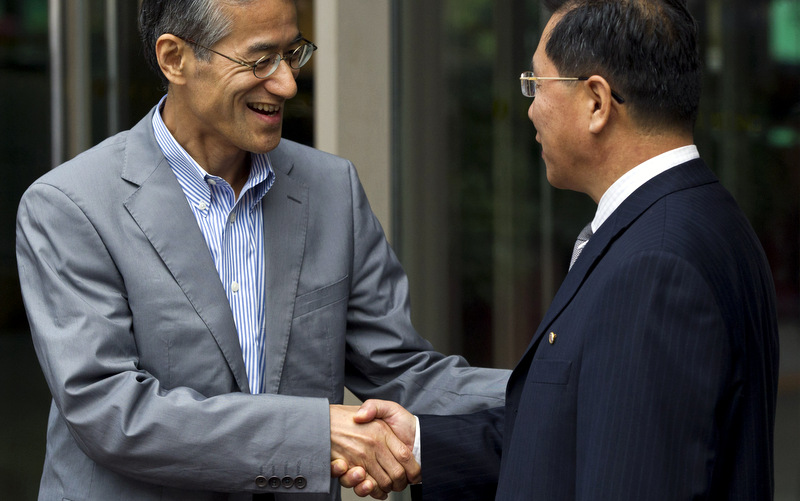
The Red Cross societies of Japan and North Korea opened a meeting in Shenyang, China, on Monday to discuss the repatriation of the remains of Japanese citizens who died in North Korea, according to news reports.
This is the first Red Cross meeting between the two countries since August 2012, Agence France-Presse (AFP) reported. The 2012 talks were suspended after North Korea launched a “satellite” in December of that year — a move Japan and other countries condemned as a cover story for a covert test of long-range missile technology carried out in violation of U.N. Security Council resolutions, Japan’s Kyodo News Agency reported.
At the revived talks, the two parties will also discuss possible visits by relatives to the graves of Japanese who died in North Korea.
Depending on the outcome of the meeting, the two countries may agree to hold unofficial intergovernmental talks, according to sources familiar with the matter.
At the outset of the meeting, Ri Ho Rim, secretary general of North Korea’s Red Cross Society, said the talks are important because government representatives from the two countries were also present, the Associated Press reported on Monday. The AP report quoted Rim as saying Monday’s talks were “productive.”
Osamu Tasaka, head of the International Department of the Japanese Red Cross Society, expressed his pleasure to see government officials taking part, the AP reported.
“We agreed to continue talks under the framework of involving both the two countries’ Red Cross societies and the respective governments,” Tasaka reportedly said after the meeting, according to Kyodo on Monday.
Keiichi Ono, director of the Northeast Asian Division of the Foreign Ministry’s Asian and Oceanian Affairs Bureau, is also attending the meeting, AFP reported.
The Shenyang meeting, which was proposed by the North Koreans, comes after Pyongyang agreed to the reunion of North and South Koreans that took place last month in a possible sign of a tilt toward a dialogue-based foreign policy.
Commenting on the Shenyang talks, Japanese Prime Minister Shinzo Abe said in Tokyo on Monday that he hopes the Red Cross discussions will lead to progress in various unresolved issues, including the abduction of Japanese citizens by North Korean spies in the 1970s and 80s, AFP reported.
It is not clear if officials will discuss those delicate issues in the upcoming talks.
North Korea, meanwhile, needs trade with Japan to improve its economic standing, but criticizes Tokyo’s military alliance with the United States, according to AFP.
An East Asia Forum report suggests economic sanctions targeting banks dealing with North Korea forces humanitarian agencies operating in the hermit kingdom to carrying large amounts of cash into the country “in order to maintain basic operations.”
“Even small individual gestures are being blocked — the Japanese government, for example, continues to tighten restrictions on the sending of gifts and financial support by Koreans living in Japan to their suffering relatives in the DPRK,” the report continued.
The Korean Peninsula was under Japanese colonial rule from 1910 to 1945.
According to the government, around 34,600 Japanese are believed to have died of hunger and disease during the final phase of World War II in the northern part of the Korean Peninsula. The remains of 13,000 people have already been repatriated to Japan, Kyodo News reported.

